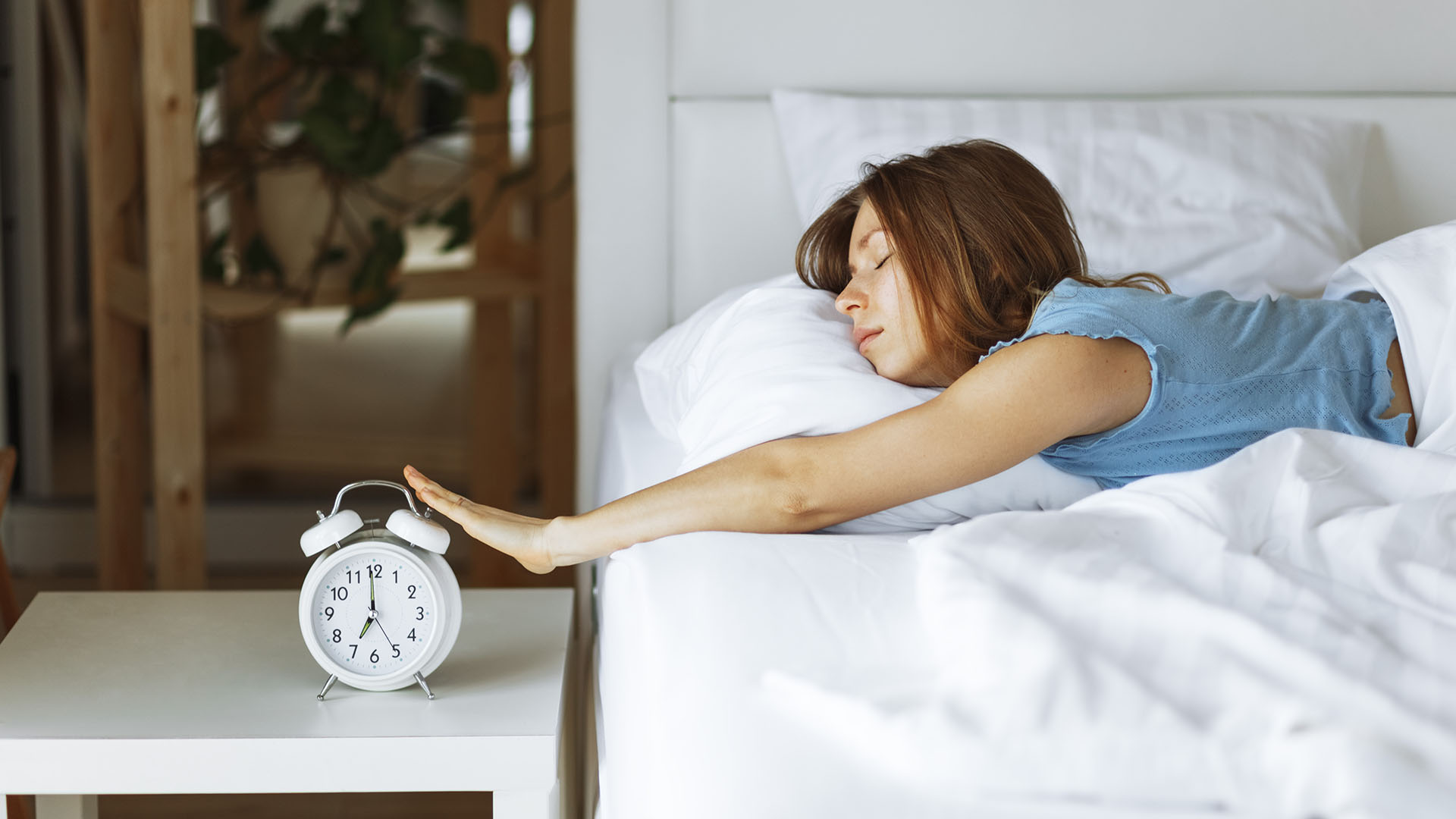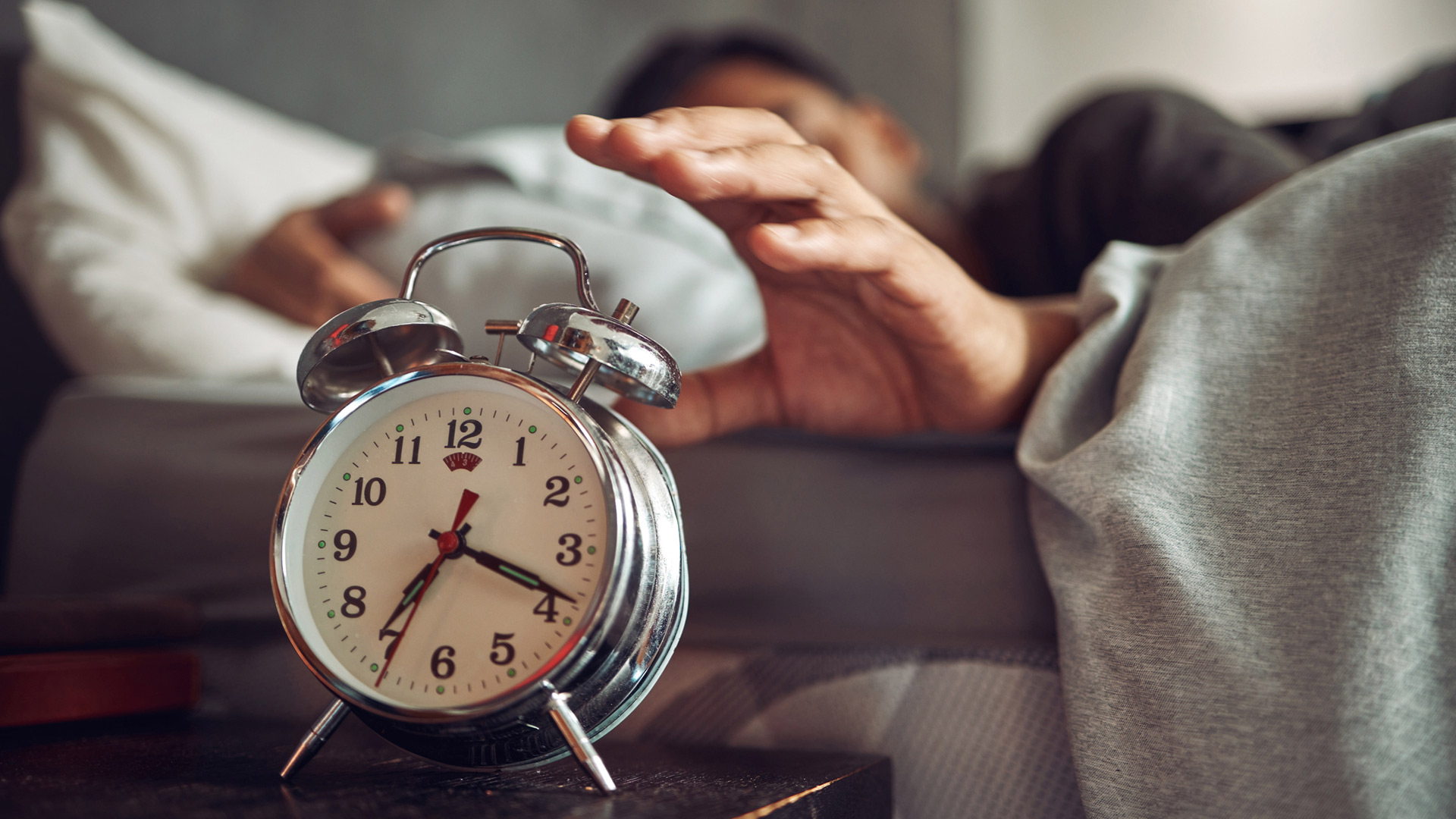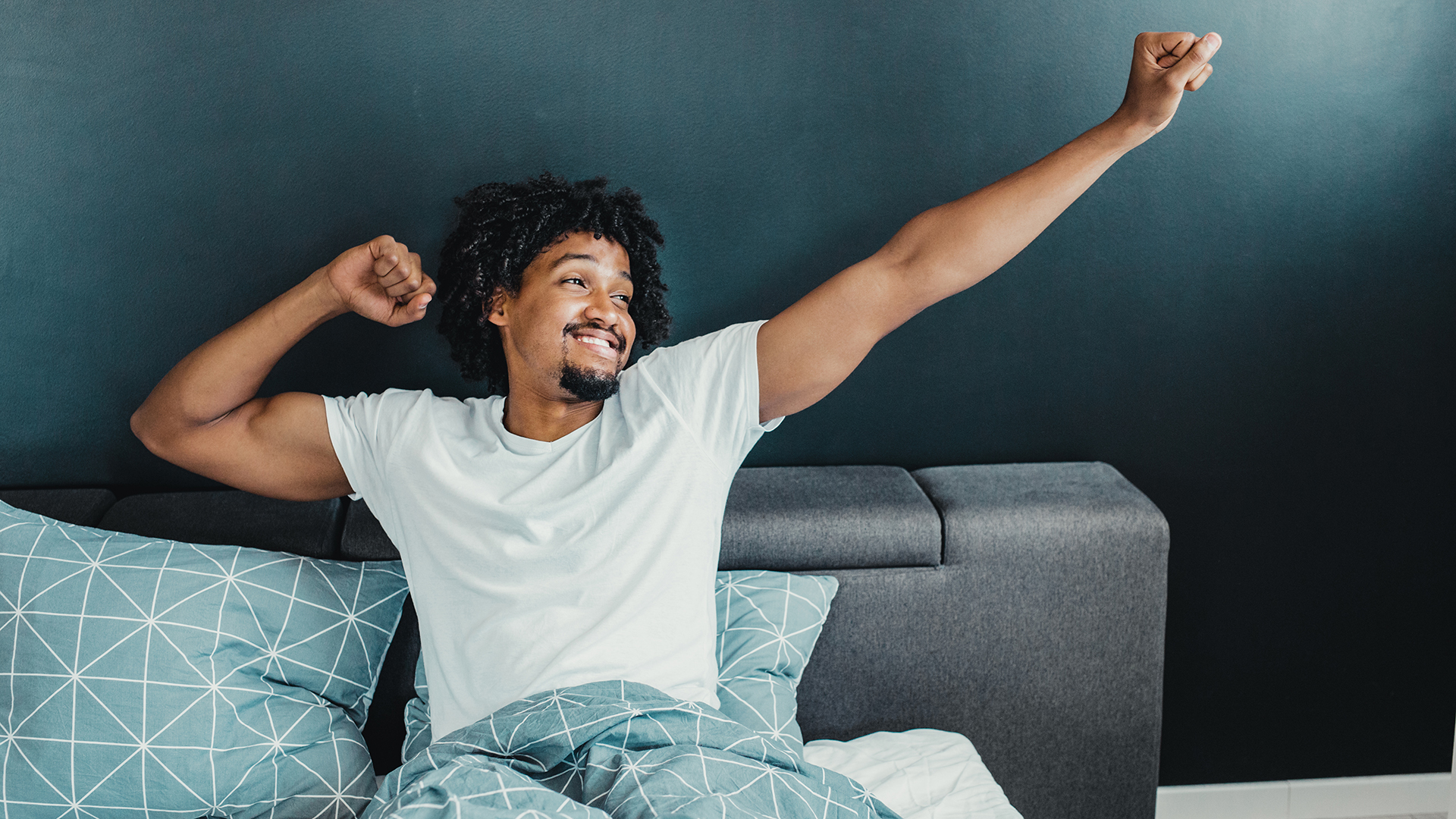I swapped to a smart alarm clock and it made my early mornings a lot less alarming
After a week, I am a smart alarm convert

I've spent a lot of time thinking and talking about how to prioritize good sleep – I'm a sleep writer, it's literally my job. And while choosing the best mattress and best pillow for my sleep style has helped me slumber through the night, there's one part of the bedtime routine I still struggle with: waking up.
For a long time, I've considered my iPhone alarm clock to be my worst enemy. It's the thing that pulls me from a happy dreamland when I'm just not ready. But although smart alarm clocks have often seemed like a good idea, I've never found one that quite met my needs.
Smart alarm clocks use sleep tracking to determine the best time in your sleep cycle to get up. By timing your wake up call to coincide with a lighter sleep phase, these alarms claim to offer a more refreshing morning.
But smart alarms generally fall into two categories: wearable sleep trackers and sound-based sleep trackers. I hate wearing a watch in bed, which rules out most of the best sleep trackers. And I live by a semi-busy road on a street with a lot of barking dogs – I’ve found sound trackers struggle to recognize what’s me and what’s everything else.

But the Sleepwave smart alarm app offers a slightly different solution. It uses sound waves to track your motion, avoiding the pitfalls of standard sound trackers. When you move, the app registers that the sound wave has been disturbed and uses this to form a picture of your sleep cycle.
This seemed like a good solution to my sleep tracker problems, so I downloaded the free app and set it to wake me up whenever was best in a 15 minute period. While I didn't dare dream it would make me a morning person, I hoped it would help make getting up easier. After eight nights using the smart alarm, here’s what I’ve discovered...
1. It's a less shocking wakeup
I’d previously changed my standard alarm tone to one of the best iPhone alarms to wake up to, but even the mellow notes of Slow Rise tend to give me a jolt first thing in the morning. I was doubtful a smart alarm would perform any differently. But to my surprise, it did feel like a calmer wake up.
Get daily insight, inspiration and deals in your inbox
Sign up for breaking news, reviews, opinion, top tech deals, and more.
It's the careful timing of the sleep tracker that resulted in these peaceful mornings. The tracker predicts when I'm in a lighter phase of sleep, so less likely to be shocked by a sudden sound, and more likely to ease into wakefulness. It felt almost as if I was waking up by myself, with the smart clock simply providing that last push.
Not for nothing, Sleepwave pairs the sleep tracker with gentle alarm sounds. Because no matter how close to waking you are, no one wants really wants a high-pitched ring blaring at them first thing in the morning.
2. The morning doesn't feel like such a drag
Although you might not recognize the term, sleep inertia is something you're almost definitely familiar with. It's that heavy grogginess sometimes experienced first thing in the morning, when it's like your brain hasn't quite switched to being awake, even though your body technically has.
Like most people, I get sleep inertia from time to time, typically on the early mornings I have to be in the office. However, since using the alarm, I've felt fresher and more alert when first waking, even at 6am. By timing the alarm with a lighter rest phase, I wasn't dragging the remnants of deep sleep into my morning.

The smart alarm didn't make me feel more awake during the day – an early morning is an early morning, no matter how gentle the wake up – but those first few minutes were definitely improved. And that made a difference to how I tackled the rest of morning.
3. I don’t miss the snooze button
I’m a perennial snoozer, and although I know hitting snooze is bad for my morning energy levels, I do it anyway. If anything, I tend to consider my alarm to be a pre-snooze button, and snooze to be my actual alarm.
So you can imagine my surprise when I spent over a week with my smart alarm and never hit snooze once. As the wake up had been so calm, with the alarm quietly lifting me from my sleep, I didn't feel like I needed to close my eyes and pick up where I'd left off. While I can't imagine I've said goodbye to the snooze button forever, I do think it's going to play a less prominent role in my mornings.
The biggest disadvantage? Early wake ups
My only grudge is a very petty one. Sleepwave gives you a minimum of 15 minutes wake up time, during which it will choose the perfect moment to sound the alarm. Somehow, I have an uncanny ability of being in my lightest sleep phase right at the start of the alarm period, meaning I could be missing out on up to 14 minutes of sleep.

Sleepwave also offers 30, 45, and 60 minute alarm windows. I experimented with the 30 minute alarm on days when I worked from home, as I still needed to wake up to avoid working from bed, but there was less pressure to be awake at a certain time. And nearly always, I was woken up right at the start of the 30 minutes.
When I go to bed, I like to know precisely when I'm getting up in the morning. The variable timing of the smart alarm will take some getting used to.
Why do smart alarm clocks work?
Smart alarm clocks monitor your sleep to track the different phases of your sleep cycle. Wearables typically measure your movement and heart rate, while sleep tracking apps often listen for sound, and the Sleepwave tracker I used monitors movement via sound waves. This allows the sleep tracker to detect when you're in different sleep phases, including REM sleep and non-REM sleep.
Before going to bed, you can set a time period you want to wake up in, for example, between 7am and 7:15am. The tracker will then sound the alarm when it detects you're in a lighter stage of the sleep cycle. Because the alarm goes when you're already close to waking up, the body and brain find it easier to transition into being awake, for a more peaceful morning. You can learn more with our guide to how sleep trackers work.

Ruth is TechRadar’s Sleep Writer. She’s here to help you find the perfect sleep setup for your budget and personal preferences. As well as keeping a keen eye on everything that’s going on in the world of mattresses, she regularly speaks to experts to help you learn how to improve your sleep habits, whether that’s by debunking sleep myths or explaining the science behind it all. Prior to joining the TechRadar team, she wrote features and product guides for new parents hoping to get a decent night's sleep, as well as writing for a variety of online spaces.